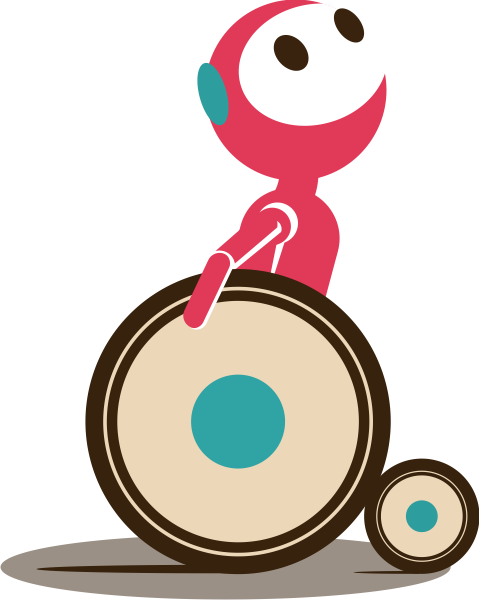Being politically correct and feeling like you are saying the ‘right’ thing is a big stumbling block for many people when discussing disability and something that even I struggle with from time to time. What phrases and terms are deemed ‘correct’ to use and what can be used in order to avoid offence are often tricky to remember if it’s not something in your everyday vocabulary.
For me, using the right words and phrases was never really that important and I just used what felt right for me. That was until, as part of some work I was doing for Graeae Theatre Company, I took part in some disability equality training. In this day session we were taught what words and phrases we should be using when delivering the workshops we were developing to address disability for school children. Terms like ‘wheelchair user’ rather than ‘in a wheelchair’ felt clunky for me and the distinction between the two had never felt that important. Over time I got into the habit of using them and it’s now a subconscious change of language.
This weekend I was asked by a well-meaning lady if I had thalidomide which I calmly responded no and explained my condition. Afterwards I laughed this off with my friend but when I told the story to my mum she got quite angry about the question and the ramifications of what that question means to her. Essentially, if I did have thalidomide this would have been caused by my mum taking medication to stop morning sickness when pregnant with me and resulted in one or more limbs being affected (you’ll have to google it if you want to find out more, I am in no way an expert on the condition). This got me thinking about language and it’s power. To me this term and being asked about my disability was not a problem, and although others were shocked by it I was able and happy to laugh it off. To me the words weren’t important and as it didn’t come from a place of malice but of curiosity I was happy to indulge that and explain.
Saying all this, language does have a huge importance and although I seem quite ambivalent about which words you should and shouldn’t use there is a sticking point for me. For me I don’t really mind if you describe me as ‘in a wheelchair’ rather than a ‘wheelchair user’ but when it comes to describing my height that’s when I have stronger feelings. The term ‘dwarf’ makes me flinch but I’m aware that other short people have decided to own the word and use it to describe themselves so am able to brush it off. This cannot be said for the ‘m’ word, the word that makes me feel as though I’ve been punched in the guts when it’s used and takes me straight back to being 6 years old and having it shouted across a playground. The ‘m’ word in question is of course midget, even typing that was painful which sounds ridiculous but it’s a word that holds so much meaning to me that even internally thinking it makes me grimace.
Whilst thinking about writing this blog this morning I started to think about the power of language and how it affects us. The power of good that words like ‘I love you’ have is often immeasurable, when we are feeling down being told ‘it will be alright’ makes it all seem better. So if we are to flip it on it’s head and think about the negative power that words can have is huge. Ignorant comments are often brushed off as ‘oh they know I don’t mean it’ ‘it’s only words’ ‘I’m only having a laugh’ but if those on the receiving end feel as I do when I hear the ‘m’ word then of course we all absolutely have to amend our language and change how we speak. It’s not just because it’s deemed politically incorrect or not the term that is currently being used but it’s a matter of not delivering the language version of a punch in the guts.
So call me short, say I use a wheelchair but more often than not just call me Sam!

Sam, this is great! I’ll be following your blog with interest, I’m sure many others will too. Xx